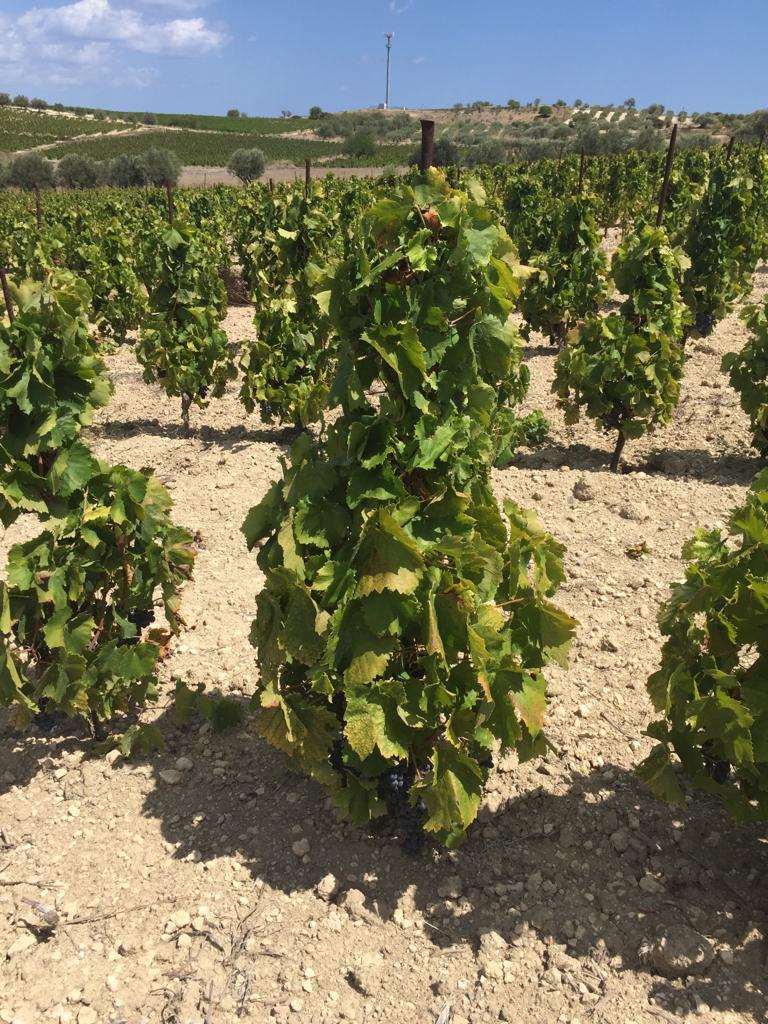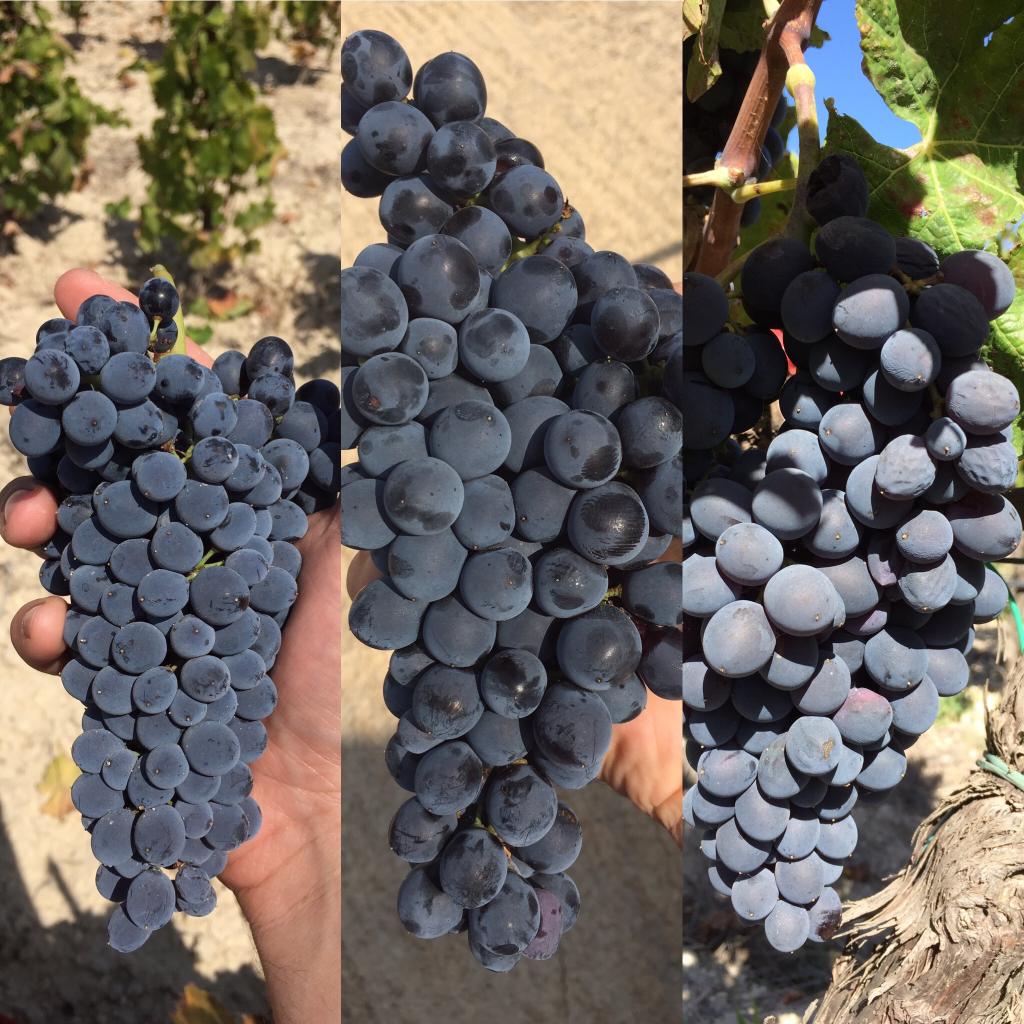My dear friend,
Here in Contrada Buonivini, things are going well, until today the Sirocco wind has been merciful and has allowed the orange blossoms of our olive trees to attach well, so we can trust in a good production of olives. The vines are beautiful, luxuriant, and we hope for a more generous year after a critical harvest like 2021. Compared to the last years, everything started late, the temperatures of the first part of spring remained low and this allowed the soils to remain cool, despite the lack of rain.
Do you remember the last email I sent you, the one from April? To close the circle, this one is dedicated to our red wines, at least the most important ones. In particular, I want to focus the attention on three wines from the 2018 harvest which are coming out now.
The previous harvest, the harvest 2017, was suffocating, and in 2018 the vines seemed to have something to recover still, but fortunately the winter repeatedly offered rains that rehydrated the soils. The spring, from mid-May onwards, was hot and the summer was no less so, but some light rain in August and September rebalanced everything. Since the first days of September we started harvesting the Nero d’Avola grapes, concluding the harvest on the 29th of the month. Three wines that recount the power of a vintage that led to fresh wines as well, with important tannic structures, which allowed us to bottle wines with very low levels of sulphites, none of them exceeding 20 mg / lt.
Rosso di Contrada is our most representative wine, it identifies the expression of our hill in Contrada Buonivini, and is obtained from four parcels, for a total of 13.5 hectares. In 2018 we produced more grapes than in 2017, while maintaining a low quantity, if compared to the average of the previous harvests: the production averaged 40 quintals per hectare (27 hectoliters / hectare, about 3,500 bottles / hectare). The grapes, all of Nero d’Avola, come from espalier vineyards (Conca and Lenza Lunga vineyards) and sapling vineyards (Coniglio and Parrino vineyards), with east and north exposures from different soils, all those soils which characterize our hill. Each plot was vinified separately in order to maintain the typical expression of the parcel, the fermentations were always spontaneous and the macerations in contact with the skins lasted about two weeks. At the end of the alcoholic and malolactic fermentation, the wines continued their aging in steel tanks. The individual tanks, divided by parcels, were assembled in a single mass before bottling, followed by a long aging in the bottle.
Rosso di Contrada 2018 is concentrated in the fruity aromas of Mediterranean scrub and withered flowers. The sip is characterized by well expressed tannins, integrated with a pleasant freshness.

Parrino is a wine obtained from the selection of a single vineyard, it takes its name from the hill where the Cozzu Parrino vineyard, or “priest’s head”, is located. This Nero d’Avola vineyard is the southernmost of our plots in terms of latitude, facing north and therefore protected from the hot wind of Sirocco. Grown as a sapling, grafted into the field with mass selection, it is a vineyard that extends for four hectares with a chromaticity of the soil ranging from calcareous white to alluvial black, up to yellow clay. In the various harvests, I have always found an extra gear in this single plot: it is a wine that maintains tension, elegance and depth even years after the harvest. The grapes are always light, poor in juice but well concentrated in flavors and acidity, they are spontaneously fermented in steel where they stay for about fifteen days in contact with the skins. The aging of the wine takes place in steel tanks and, after bottling, a long refinement in the bottle follows.
From this vineyard, we obtain wines balanced in freshness and softness, very elegant in evolution. In particular, the year 2018 is full of warm notes without excesses, in a pleasant balance. The sip has a good tannic presence, even more accentuated by a vibrant and juicy freshness.
Archimede was our first wine, produced for the first time back in 2002 from the only vineyard that we did not plant. A plot that extends for one and a half hectares, with about fifty-year-old sapling-trained vines (with the old, very narrow, plant spacing of 1.25 m x 1.25 m, we can only work it by hand and with a motor hoe). The soil is calcareous, the vineyard has a slight southern exposure and an altitude of only 30 meters above the sea level. The high density and the age of the vines greatly limit the production of this historic plot, which therefore has a very low yield: in recent years it has stood at around 17 hectoliters (about 2,000 bottles / hectare). Archimede 2018 was harvested on September the 18th and the must fermented spontaneously for two weeks in contact with the skins. Once the wine has been drawn off, it has matured in wild cherry barriques for about a year, after bottling, a long refinement in the bottle followed. In fact, I believe that time can only benefit this wine.
A red that needs a few minutes after opening to evolve in all its fruity and spicy power, surrounded by hints of citrus at times. The sip is full, tasty and fresh, with a very long and present tannin.

So, in closing, just a little note: the harvest 2018 marks the end of an interpretative process of vinification of red wines focused on extraction, power and freshness. In the following harvests, stylistic slightly changed, in order to follow a less extractive, more delicate and calibrated approach, without ever losing the identity of the territory. My journey as a winemaker is constantly evolving, the comparison with other producers and the experience of the harvests are gradually outlining an idea of wine based on lightness and depth without ever giving up the material that this territory offers.
As you may remember, my adventure in the world of wine began in 2008, since then, I have been experiencing a training course in continuous evolution, always focused on Nero d’Avola without forgetting Moscato di Noto and its many possible interpretations, but we will talk about this in the upcoming newsletters.
Thank you, I wish you a great summer,
Pierpaolo Messina
